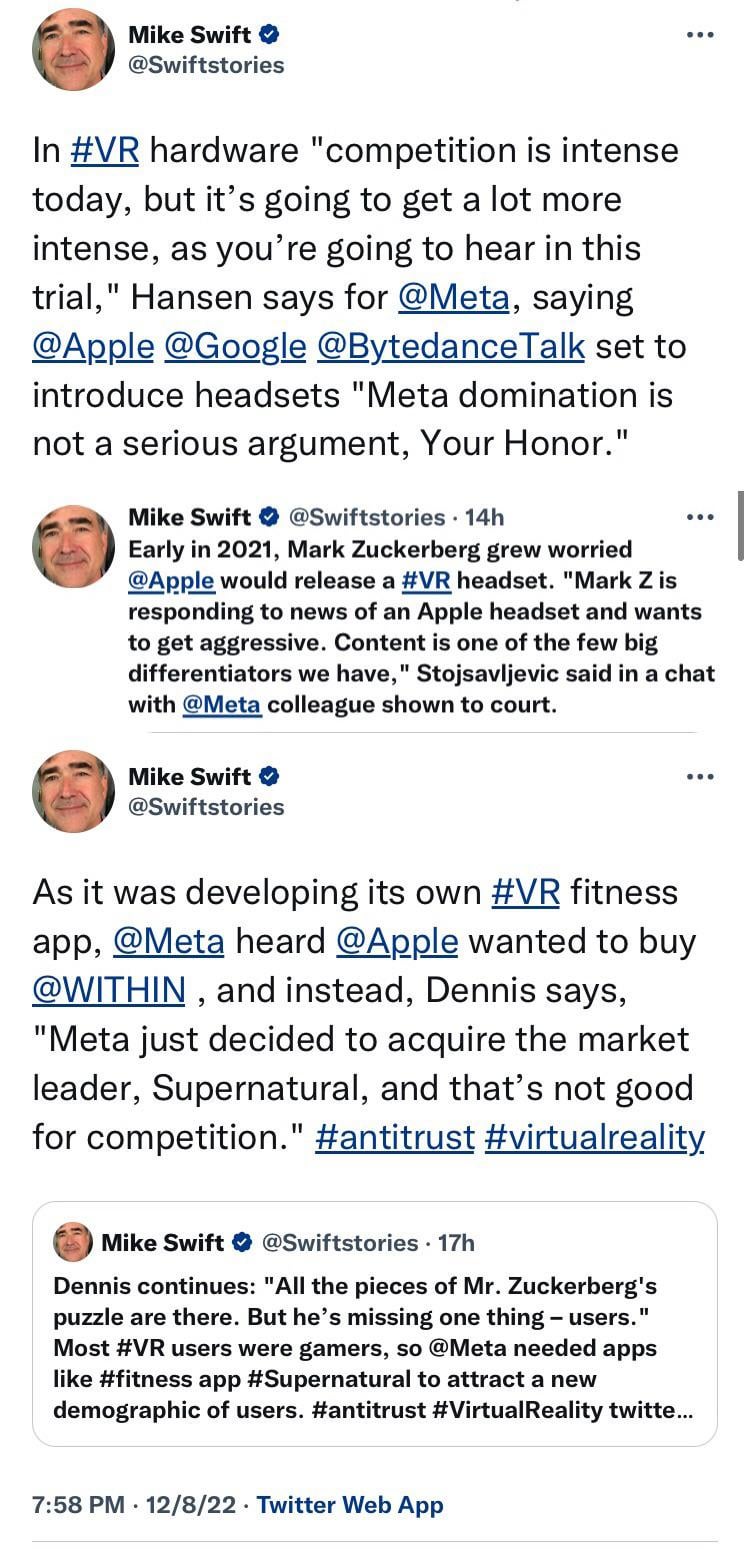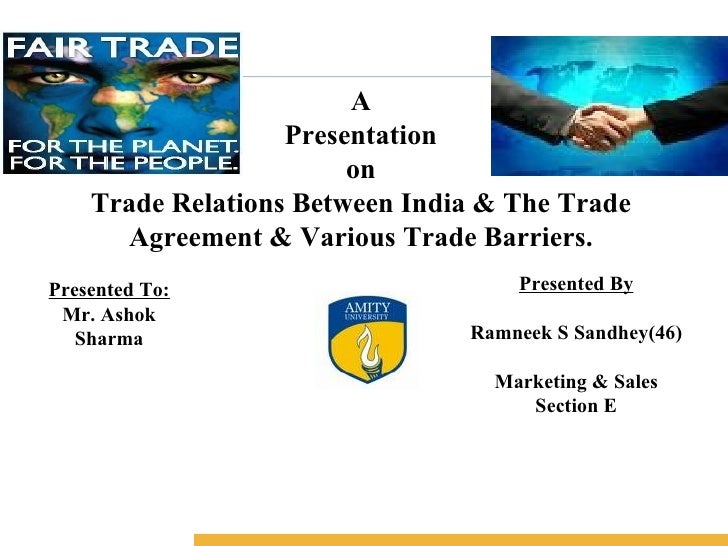The FTC's Changing Strategy In The Meta Monopoly Case

Table of Contents
The Initial FTC Complaint: Focusing on Anti-Competitive Acquisitions
Early Allegations of Anti-Competitive Acquisitions
The FTC's initial complaint against Meta centered on its acquisitions of Instagram and WhatsApp. The argument was that these acquisitions, while presented as business deals, were actually anti-competitive maneuvers designed to eliminate potential rivals and solidify Meta's dominance in the social networking market. The FTC argued that Meta strategically acquired these companies to prevent them from becoming major competitors, thereby stifling innovation and harming consumers.
- The FTC alleged that Meta acquired Instagram in 2012 to neutralize a growing threat.
- Similarly, the acquisition of WhatsApp in 2014 was seen as a move to eliminate another significant competitor in the messaging app space.
- The initial FTC strategy focused on demonstrating that these acquisitions violated antitrust laws by substantially lessening competition.
- The FTC cited internal Meta communications and market analysis in its initial filings.
Weaknesses in the Initial Approach
Despite the compelling narrative, the FTC's initial approach faced challenges. One criticism was the difficulty in proving that the acquisitions directly led to a substantial lessening of competition. Legal precedents required demonstrating a clear causal link between the acquisitions and the suppression of competition, a hurdle the FTC initially struggled to overcome.
- The FTC faced difficulties in providing concrete evidence of stifled innovation or harm to consumers directly resulting from the acquisitions.
- Some legal experts argued that the FTC's initial strategy lacked a robust economic analysis of the social media market.
- Concerns were raised about the evidentiary burden the FTC would need to meet in court.
The Evolving FTC Strategy: A Broader Focus on Market Dominance
Shifting Focus to Meta's Overall Market Power
The FTC's strategy has evolved beyond focusing solely on specific acquisitions. The revised complaint acknowledges Meta's overall market dominance and its impact on competition, employing a broader approach to antitrust enforcement. Instead of merely focusing on past acquisitions, the FTC now addresses Meta's current market power and how it is maintained through various strategies.
- The FTC now emphasizes Meta's control over a significant portion of the social media market.
- The revised strategy utilizes a more comprehensive economic analysis to demonstrate Meta's anti-competitive behavior.
- This broader approach aims to address the systemic issues of market dominance rather than focusing on individual acquisitions in isolation.
Emphasis on Data Collection and Algorithmic Practices
A crucial aspect of the FTC's evolving strategy is the increased scrutiny of Meta's data collection practices and the use of algorithms to maintain its dominance. The FTC alleges that Meta's data collection and algorithmic manipulation stifle competition by creating insurmountable barriers to entry for new social media platforms.
- The FTC argues that Meta uses vast amounts of user data to personalize advertising and enhance user experience, creating a competitive advantage that is difficult for rivals to replicate.
- The use of algorithms is alleged to create network effects and reinforce Meta's market dominance.
- This aspect of the FTC's case introduces new legal arguments related to data privacy and algorithmic bias, significantly expanding the scope of the lawsuit.
Potential Outcomes and Implications of the FTC's Changing Strategy
Likelihood of Success for the Revised Strategy
The FTC's revised strategy, while broader, faces its own set of challenges. The success of the lawsuit depends on the court's acceptance of the FTC's new arguments and its ability to demonstrate a clear link between Meta's practices and harm to competition. However, the broader approach and inclusion of data practices might prove more persuasive to the courts.
- Updated legal precedents related to market dominance and data privacy could play a significant role in the outcome.
- The success of the FTC's revised strategy may depend on the evidence presented and the interpretation of existing antitrust laws.
- The FTC may need to demonstrate significant harm to consumers as a direct result of Meta's actions.
Broader Implications for Tech Regulation
The FTC's evolving approach in the Meta case has significant implications for antitrust law and the regulation of large technology companies. It represents a shift towards a more comprehensive understanding of market power in the digital age and the role of data in creating and maintaining dominance.
- The outcome of this case will likely influence future antitrust enforcement against other tech giants facing similar accusations.
- The case sets a precedent for how data collection and algorithmic practices will be evaluated under antitrust laws.
- It may lead to stricter regulations regarding mergers and acquisitions in the tech sector, particularly those involving companies with significant market power.
Conclusion: The Future of the FTC's Meta Monopoly Case and its Broader Significance
The FTC's strategy against Meta has evolved significantly, shifting from a focus on individual anti-competitive acquisitions to a broader concern with Meta's overall market dominance, its data practices, and algorithmic manipulation. This change reflects a growing awareness of how large technology companies leverage data and algorithms to maintain their power. The outcome of this case will have far-reaching implications for antitrust law and the regulation of the tech industry, shaping the competitive landscape for years to come. The FTC's changing strategy in the Meta monopoly case is a crucial development to follow; stay informed about this ongoing legal battle by subscribing to legal news updates, engaging in further research, and keeping an eye on future court decisions related to the FTC's Meta monopoly lawsuit. Understanding the FTC's approach to Meta's monopoly is vital for anyone interested in the future of competition in the tech world.

Featured Posts
-
 Florida State University Shooting Examining The Victims Family History
May 19, 2025
Florida State University Shooting Examining The Victims Family History
May 19, 2025 -
 Tuerk Devletlerinden Kktc Ye 12 Milyon Avro Uzman Goeruesleri Ve Degerlendirmeler
May 19, 2025
Tuerk Devletlerinden Kktc Ye 12 Milyon Avro Uzman Goeruesleri Ve Degerlendirmeler
May 19, 2025 -
 9
May 19, 2025
9
May 19, 2025 -
 The Rise Of Abusa Implications For Us Trade Relations
May 19, 2025
The Rise Of Abusa Implications For Us Trade Relations
May 19, 2025 -
 Indias Top News Today Key Headlines Bjp Congress You Tuber Spy Scandal
May 19, 2025
Indias Top News Today Key Headlines Bjp Congress You Tuber Spy Scandal
May 19, 2025
